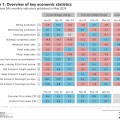
Economic wrap-up for May 2024
Stats SA published 24 releases in May, with many providing a preliminary overview of economic performance in the first quarter (January–March). Key industries down in the first three months of the year Mining, manufacturing, electricity, construction, retail trade, motor trade and road transport were weaker in the first quarter of 2024 compared with the fourth read more »
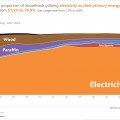
The state of South African households in 2023
In 2024, South Africa celebrates three decades since the advent of democracy, a pivotal moment in its history. This milestone not only signifies the passage of time but also reflects the enduring journey towards equality, freedom, and justice for all its citizens. Households reflect the ongoing transformation, encompassing a diverse mix of cultural, economic, and read more »
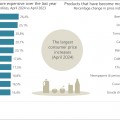
Consumer inflation slows for a second consecutive month
The consumer price index (CPI) recorded an annual increase of 5,2% in April, down from 5,3% in March and 5,6% in February. Housing & utilities, miscellaneous goods & services, food & non-alcoholic beverages (NAB) and transport were the main drivers behind the headline rate in April. The monthly change in the CPI was 0,3% in read more »
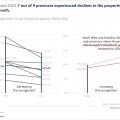
Unemployment in South Africa: A Youth Perspective
South Africa, like many countries globally, grapples with the challenge of youth unemployment. This is supported by statistics indicating a 45,5% unemployment rate among young individuals (aged 15-34 years), in contrast to the national average of 32,9% in the first quarter of 2024. However, when looking at the Labour Market Dynamics in South Africa report read more »
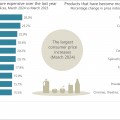
Consumer inflation cooled in March
Following a two-month upswing, headline inflation softened to 5,3% in March from 5,6% in February. The rate has held its ground between 5% and 6% since September 2023. The monthly change in the consumer price index (CPI) was 0,8% in March. This is lower than the 1,0% increase in February. The biggest movers in March The read more »
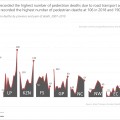
Road transport accident deaths on the increase in SA
South Africa is part of the consortium of nations that signed the 2030 Agenda for Sustainable Development, adopted by all United Nations members in 2015. The aim of the Sustainable Development Goal (SDG), Target 3.6 was to halve the number of global deaths and injuries from road traffic accidents by 2030. However, results of a read more »
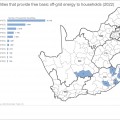
Solar energy for the poor
Households and businesses are adopting alternative sources of energy as load shedding bites. What may not be well known is that many municipalities are in the game too, providing off-grid energy sources to the poorest households. The Free Basic Alternative Energy (FBAE) policy1 instructs municipalities to supply alternative sources of energy to poor households that read more »
Marriage Registrations in South Africa Declining
The administrative data on civil marriages indicates a notable downward trend in marriage registrations. As outlined in the Marriages and Divorces report for 2022, published by Statistics South Africa, there has been a significant decline of 29,5% in the number of civil marriages recorded between 2013 and 2022. Even when considering the impact of COVID-19 read more »
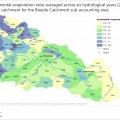
Liquid ledger: SA develops experimental water resource accounts
A water resource account is a balance sheet for a particular geographical area, providing data on water inflows, water outflows and changes in water storage. Water resource accounts in South Africa are physical accounts at the catchment scale, quantifying changes in stocks, flows and water consumption within a defined spatial and temporal domain. Statistics South read more »
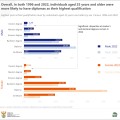
Marginalised Communities in SA Achieve New Heights in Education
2024 commemorates three decades since the inception of democracy in South Africa. Since 1994, South Africa has ushered in notable reforms across multiple sectors, with education being one of the key areas of focus. These reforms aimed to address historical inequalities and improve access to quality education for all citizens. Substantial investments have been made read more »

